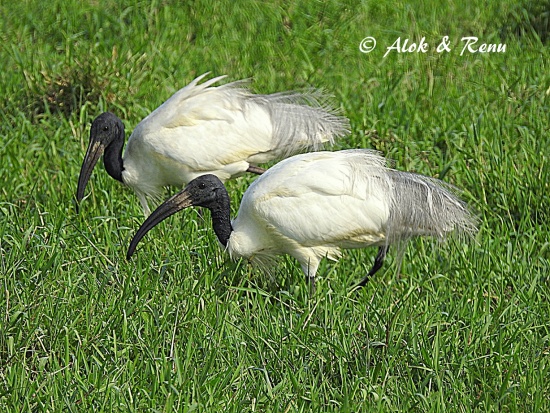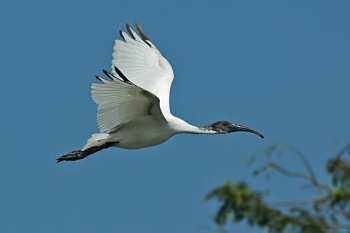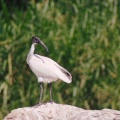Aloktewari (talk | contribs) (Date 2nd image in the Gallery) |
Aloktewari (talk | contribs) (Video link/ Category) |
||
| (One intermediate revision by one other user not shown) | |||
| Line 36: | Line 36: | ||
{{ref}} | {{ref}} | ||
==External Links== | ==External Links== | ||
| − | + | {{GSearch|"Threskiornis melanocephalus" {{!}} "Black-headed Ibis"}} | |
| − | {{GSearch|Threskiornis | + | <br /> |
| − | + | {{VSearch|"Threskiornis melanocephalus" {{!}} "Black-headed Ibis"}} | |
| − | {{ | + | |
{{GS-checked}} | {{GS-checked}} | ||
<br /> | <br /> | ||
<br /> | <br /> | ||
| − | [[Category:Birds]] [[Category:Threskiornis]] | + | [[Category:Birds]] [[Category:Threskiornis]][[Category:Videos]] |
Latest revision as of 14:47, 29 July 2023

Photo © by Alok Tewari
Basai Wetlands, Gurgaon, Haryana, India, 18 June 2015
- Threskiornis melanocephalus
Identification
65–76 cm (25½-30 in)
- White overall plumage
- Greyer areas on wings
- Black bald head
- Black neck and legs
- Black, thick curved bill
Sexes are similar, but juveniles have whiter necks and black-tipped wings.
Distribution
India to south-east Asia. Winters to eastern China, Sumatra, and the Philippines; which seems to be extremes of the range of this species.
Taxonomy
This is a monotypic species[1].
This member of the family Threskiornithidae has previously been considered a part of the Sacred Ibis, but is now considered a full species.
Habitat
Rivers, marshes and paddyfields. Also present in coastal areas.
Behaviour
Diet
The diet consists of fish and frogs, tadpoles, worms, snails, larval and adult insects.
Breeding
They build a stick nest in a tree. The clutch consists of 2–4 eggs.
Gallery
Click on photo for larger image
Immature
Photo © by santhoshk
Photographed in Ranganthittu, IndiaJuvenile
Photo © by bentwing
Keoladeo National Park, India, 26 March 2011
References
- Clements, J. F., T. S. Schulenberg, M. J. Iliff, D. Roberson, T. A. Fredericks, B. L. Sullivan, and C. L. Wood. 2016. The eBird/Clements checklist of birds of the world: v2016, with updates to August 2016. Downloaded from http://www.birds.cornell.edu/clementschecklist/download/
- Handbook of the Birds of the World Alive (retrieved February 2016)
- Wikipedia
- BF Member observations
Recommended Citation
- BirdForum Opus contributors. (2024) Black-headed Ibis. In: BirdForum, the forum for wild birds and birding. Retrieved 16 May 2024 from https://www.birdforum.net/opus/Black-headed_Ibis
External Links
GSearch checked for 2020 platform.






